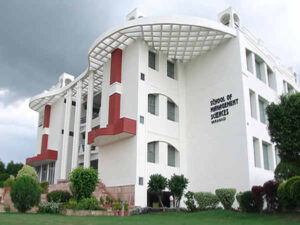The Bachelor of Computer Applications (BCA) is a three-year undergraduate programme specialising in computer science and information technology. It’s a sought-after choice for students keen on forging a career linked to computer science. The BCA syllabus encompasses diverse subjects, from software development and web design to programming, networking, and systems analysis.
A prevailing notion suggests that BCA for Science Students is the ideal fit, particularly for those with a strong foundation in science or mathematics. Nevertheless, this belief is rather misplaced. Bachelor of Computer Applications welcomes students across all academic streams, be it science, commerce, or arts.
Yet, it’s undeniable that science students possess a certain advantage. This article delves into the top five reasons why science students often outperform in BCA and the advantages they glean from the course:
1. A Strong Foundation in Logic and Analysis

A primary reason science students excel in the Bachelor of Computer Applications (BCA) is their honed analytical skills, acquired from their science education at the 10+2 Level. These analytical capabilities, essentially the knack for logical and systematic information processing, are nurtured through the application of the scientific method – a structured process of inquiry, experimentation, and evaluation.
Within their science curriculum, students familiarise themselves with:
- forming hypotheses,
- structuring experiments, managing variables,
- scrutinising results,
- analysing data, and
- drawing informed conclusions.
Such a skillset aligns seamlessly with the demands of computer applications, equipping students to proficiently:
- address challenges,
- rectify code errors,
- finetune algorithms, and
- devise new computational methods.
Hence, Class 12-level science education furnishes students with analytical competencies that become invaluable in BCA. To elucidate, here are three tangible examples from the tech realm where the scientific methodology proves indispensable:
a) Addressing a Software Glitch:
- Observe the glitch and its ramifications.
- Pose a question regarding the glitch’s origin and magnitude.
- Propose a hypothesis pinpointing potential causes and remedies.
- Predict the anticipated outcome upon implementing the solution.
- Implement and monitor the proposed solution, noting the outcomes.
b) Enhancing Website Performance:
- Analyse current website performance metrics.
- Raise queries about elements influencing performance and the set objectives.
- Develop a hypothesis on potential enhancement strategies.
- Foresee the potential impact of these enhancements.
- Apply the changes and assess the subsequent performance metrics.
c) Assessing a Product Concept:
- Examine the market and discern consumer requirements.
- Question the product’s unique value and its alignment with market needs.
- Hypothesise on the target audience, distribution channels, and potential revenue streams.
- Anticipate feedback and consumer interaction with the product.
- Prototype the idea via a Minimum Viable Product (MVP) and test its appeal with a sample audience.
In essence, the scientific method not only paves the way for success in BCA for science students but also equips them with a robust problem-solving approach, adaptable across diverse tech challenges.
2. Comfort with Complex Systems

Science students routinely study and grapple with complex processes spanning areas like physics, chemistry, biology, and ecology. Within these subjects, they navigate a myriad of components which, when interacting, can create unpredictable outcomes not readily deduced from basic rules.
Through their studies, these students learn about scientific models – be it equations, visual diagrams, simulations, or hands-on experiments – to decode the intricacies of such multifaceted systems.
Such an adeptness at understanding intricate systems provides a seamless transition for science students delving into the Bachelor of Computer Applications (BCA).
Like their scientific counterparts, computing systems and networks are intricate structures, composed of numerous hardware and software elements working in concert. These systems perform multifarious tasks and showcase advanced behaviours, including self-organisation and adaptability.
Therefore, for science students, BCA becomes a natural progression. They can channel their analytical prowess and modelling expertise to dissect the dynamics of computing frameworks. Furthermore, their innate creativity and problem-solving capabilities empower them to craft computing solutions that stand out for their efficiency, scalability, and resilience.
3. Mathematical Prowess

Mathematics plays a pivotal role in the Bachelor of Computer Applications (BCA), underpinning many computer science concepts. It cultivates logical and analytical capabilities crucial for areas like programming, data structures, and artificial intelligence.
Through mathematics, students gain insight into principles of efficiency, accuracy, and optimisation vital for crafting robust computing solutions.
Science stream with Maths in 10+2 offers a distinct advantage to BCA students. Having already delved into subjects such as algebra, calculus, and statistics during their advanced schooling, science students find themselves a step ahead in the BCA’s initial year when these topics re-emerge.
BCA for Science students is easier as they are already familiar with scientific methods, from hypothesis testing to inference, which positions them uniquely for research and innovation within computer science.
4. Scientific Curiosity and Continuous Learning

Driven by a desire to investigate and comprehend both natural and artificial phenomena, scientific curiosity is a cornerstone of innovation and progress within the tech sector. This curiosity not only spurs individuals to challenge prevailing norms and address intricate issues but also amplifies learning.
It primes the brain for assimilating fresh insights, enriches the learning experience, and aids in long-term retention of information.
Students of science often display a deep-seated curiosity, thanks to their early exposure to scientific methodologies and principles. Such students are trained to pose questions, discern patterns, validate hypotheses, and form conclusions rooted in evidence.
Hence, BCA, for science students, is a very suitable course. In the dynamic realm of IT, marked by the ceaseless emergence of novel technologies and systems, the skill set of science students—acquired from their Bachelor of Computer Applications course—enables them to adeptly adapt.
Their inherent zeal to fathom the mechanics of things further ignites their innovative spirit, pushing them to craft groundbreaking solutions and products.
5. Practical Approach to Problem Solving

In science, the experimental approach is a method employed to validate a hypothesis. This involves tweaking one or several variables and observing their impact on another variable. This technique is incredibly pertinent in the realm of tech solutions.
It aids in the creation and assessment of new products, features, algorithms, or systems. Furthermore, the experimental approach is instrumental in enhancing the efficacy, user-friendliness, and dependability of existing solutions through the examination of diverse parameters, setups, or designs.
When science students take admission to the ‘Bachelor of Computer Applications’ programme, they often turn to empirical evidence and iterative testing—methods reminiscent of software development practices—to pinpoint and corroborate solutions.
Empirical evidence encompasses data amassed from observations, experiments, or measurements, which others can authenticate. Science students rely on this form of evidence to back or refute hypotheses, ensuring their conclusions are grounded in factual data.
Iterative testing involves the repetition of experiments or tests under varied conditions or with different inputs to bolster the precision and quality of outcomes. Through iterative testing, science students fine-tune their hypotheses, methodologies, and analyses, systematically weeding out inaccuracies or biases.
This holistic approach underscores why BCA is especially fitting for science students.
Conclusion
Science students often thrive in the Bachelor of Computer Applications (BCA) programme due to their strong foundation in logic and analysis, comfort with complex systems, mathematical proficiency, innate scientific curiosity, and practical approach to problem-solving. These skills, honed through rigorous science education, equip them to tackle intricate tech challenges, making them stand out in the realm of computer applications. For science students contemplating a BCA degree, it’s an opportunity to harness their analytical abilities and innate curiosity in a field ripe for innovation. Embracing BCA could be a stepping stone to pioneering the next big breakthrough in technology.





